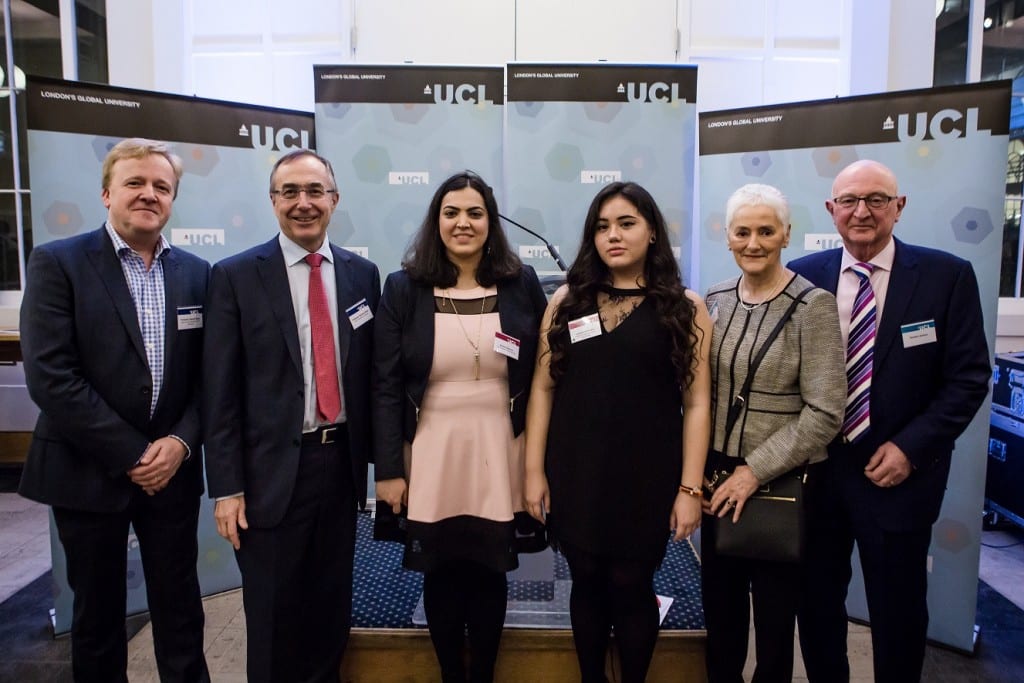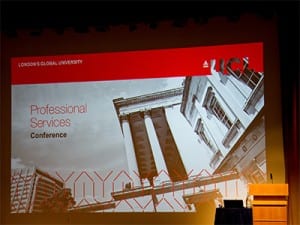UCL Annual Scholarships and Bursaries Reception 2016
By ucyow3c, on 5 February 2016
Written by Bronwen Butler, Geography (International programme) BA.
To kick off philanthropy month on February 1st UCL held its annual Scholarships and Bursaries Reception. The event has gone from strength to strength each year; from a tiny affair which Provost Michael Arthur jokingly said “could have been held in a broom cupboard” to a vibrant event to which over 500 people are invited to celebrate UCL, the generosity of its donors and the importance of philanthropy.

Image: (left – right): Professor Geraint Rees, Provost Michael Arthur, Naimeh Masumy, Janie Gammans, Maureen Amar, Richard Jenkins
President and Provost Professor Michael Arthur opened the event with a warm welcome to all the donors, staff and recipients in attendance. He discussed the importance of the UCL philanthropic Campaign and the university’s achievement as one of the top universities at fundraising in the UK this year. He briefly looked to UCL’s future developments before introducing the first student speaker Naimeh Masumy.
Naimeh Masumy is a full time LLM Law Student at UCL, originally from Iran. She is an ambitious young woman who has clearly battled against the odds to be here. Naimeh is a student with a bright future in the energy law sector but she is one of many people who simply could not think about life at UCL without a scholarship:
“I have to say I would not be here without the Ardalan Family Scholarship. In my whole life, I have come to realize that education is the most transcendent gift one can be given, and the Ardalan Scholarship gave me that gift, it allowed me to have a foot in the door of the future, a future I was once unable to envision”.
 Close
Close


 More than 800 staff were in attendance at the second UCL Professional Services Conference, which took place on Tuesday 2 February at Logan Hall. The event was an opportunity to celebrate the achievements of the professional services community at UCL in a relaxed environment that also provided time to network, receive up-to-date information and socialise at the post conference reception.
More than 800 staff were in attendance at the second UCL Professional Services Conference, which took place on Tuesday 2 February at Logan Hall. The event was an opportunity to celebrate the achievements of the professional services community at UCL in a relaxed environment that also provided time to network, receive up-to-date information and socialise at the post conference reception.
